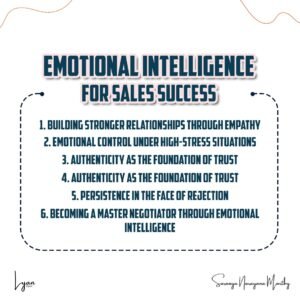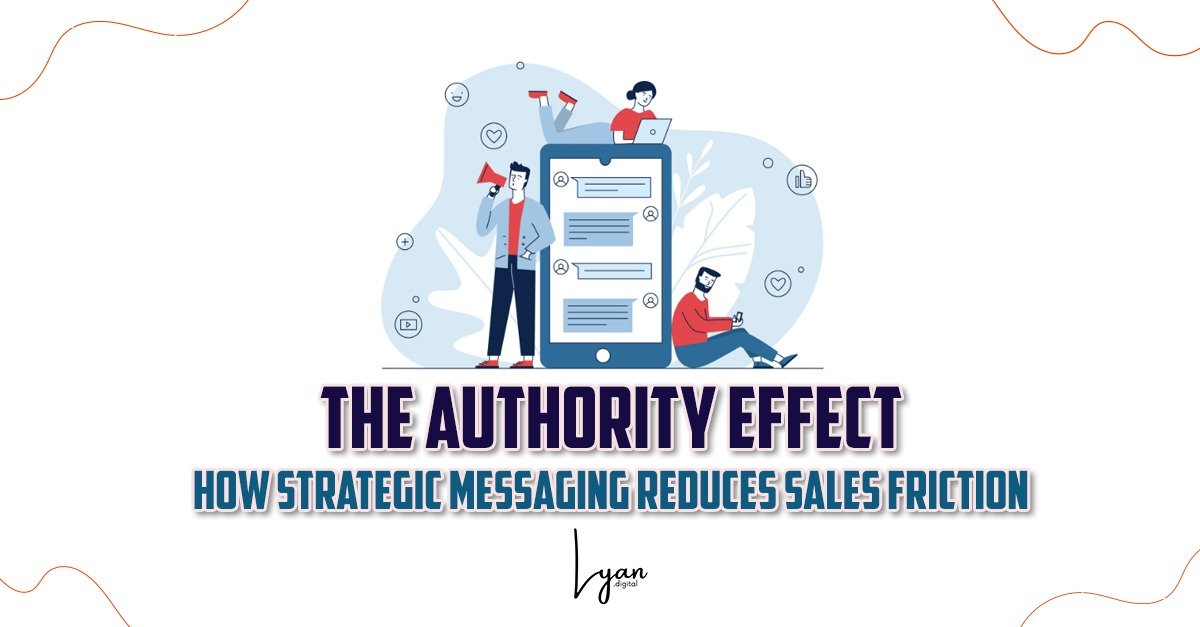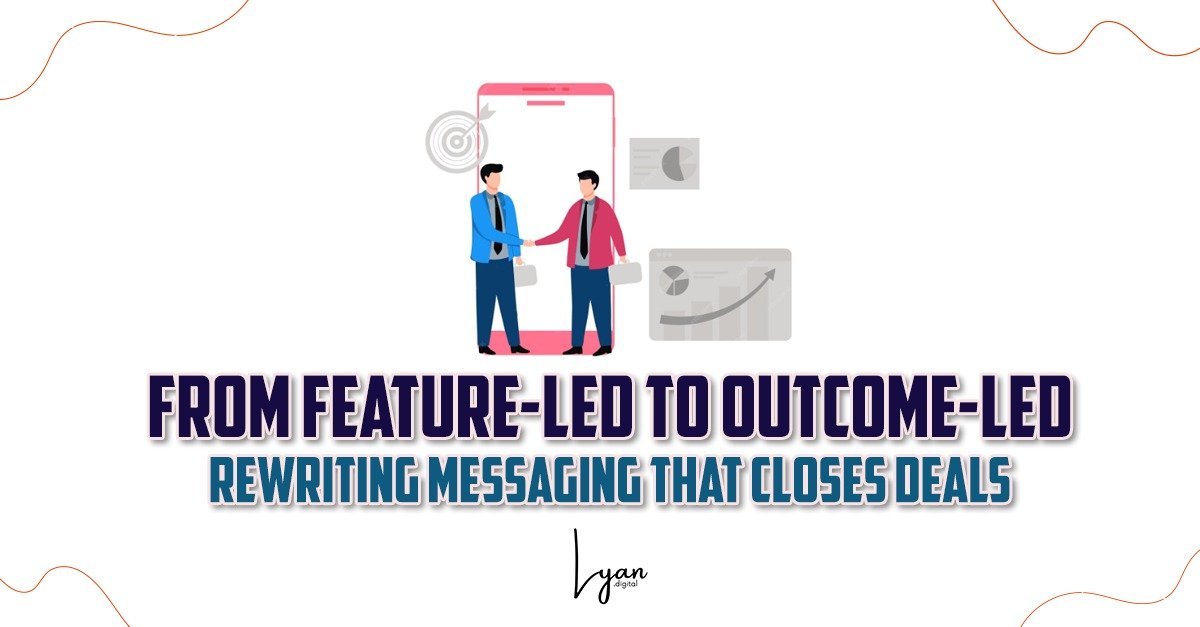Sales success is not product knowledge or technical expertise—it’s building real, human relationships with customers. Emotional intelligence (EQ) is the differentiator that sets A-level salespeople apart from all the rest. EQ enables salespeople to be aware of how the customer is feeling, respond similarly, and build trust, which translates to long-term success.
In this blog, we’ll explore why emotional intelligence is essential in sales and how salespeople can leverage it to create deeper connections, navigate objections, and close more deals.

-
Building Stronger Relationships Through Empathy
Empathy—the ability to understand and share the feelings of another—is a core component of emotional intelligence. Successful salespeople don’t just push their products; they genuinely care about their customers’ needs, challenges, and goals.
By sensing the customer, they’re out of transaction mode and in problem-solving mode. That establishes rapport and trust, and folks will do business with them.
Key Takeaway: Both rapport and trust are key to long-term successful selling, and empathy builds both.
-
Emotional Control Under High-Stress Situations
Sales is a stressful career with lots of confrontations, objections, and rejections. An emotionally intelligent salesperson would be someone who keeps his or her head and is not bothered by all these confrontations.
Rather than becoming defensive when a customer inquires about price or product, top performers control their emotions, listen carefully, and respond thoughtfully. This way, they can maintain themselves constructively positive and confident, which influence the client’s impression and enhance the possibility of closing the sale.
Key Takeaway: Emotion regulation guarantees professionalism and preserves conversation productivity even in failures.
-
Authenticity as the Foundation of Trust
Potential clients are going to shortchanged or literally coerced to make a sale if they feel the salesman is offering them an ultimatum. Sales professionals use emotional intelligence in being honest, sincere, and sincere when it comes to what something or something offered would and could do.
Honesty and sincerity create long-term relationships that transform salespeople into advisors, rather than transaction specialists. Open price communication in simple terms, the capacity to solve problems, and actual results establish credibility and trust with the buyer.
Key Takeaway: Honesty and sincerity create credibility and trust that generate repeat purchases and referrals.
-
Synchronizing to Different Customer Personalities
Every customer is different. Some prefer things brief and to the point, and others require reassurance and heaps of data. Empathetic salespeople are able to select a client’s communication style with minimal effort and conform to it.
The capacity to read emotional signals enables them to modify their pitch, tone, and style to provide a more tailored experience. Responsiveness dramatically increases their chances of making a sale.
Key Takeaway: Adaptability with different personalities leads to greater customer interaction and better sales results.
-
Persistence in the Face of Rejection
Rejection is reality in sales, but emotionally intelligent salespeople do not take rejection personally. Instead of moping about failures, they see them as a chance to learn and grow for the next lead.
They ask what went wrong, critique what failed and keep smiling. That kind of resilience allows them to come back and keep going in spite of gloomy markets.
Key Takeaway: Emotional intelligence protects salespeople against failure and keeps them motivated.
-
Becoming a Master Negotiator Through Emotional Intelligence
Good negotiators understand that win and lose is not what successful transactions are all about—value creation for both sides is all about. Emotionally intelligent salespersons are able to sense the underlying emotion of a customer’s complaint and utilize it to negotiate win-win outcomes.
With empathy and sensitivity, they negotiate concessions that satisfy customers’ needs without sacrificing profitability.
Key Takeaway: Emotional intelligence enhances negotiation effectiveness, leading to better relationships and better deals.
Frequently Asked Questions
What makes emotional intelligence in sales so crucial?
- Emotional intelligence allows the salesperson to build trust, deflect objections, and build a closer customer relationship.
How can I become more emotionally intelligent as a salesperson?
- Listen more, self-manage your emotions when they become difficult, and learn to empathize with customers’ needs.
What is objections in the context of emotional intelligence?
- It keeps you calm, see the actual problems, and respond in a way that reassures the customer rather than fighting back.
Real-Life Scenarios
- Salesperson observes hesitant customer. Instead of being aggressive, they ask questions, empathize, and change the offer so the customer feels special and valued.
- A new salesperson has difficulty with rejection. They start writing down what is happening to them, deconstructing what is going well and what isn’t going well, and ultimately develop healthier coping mechanisms, leading to improved performance.
- A customer does not want to have a long-term contract. Rather than pressuring him, the salesperson listens to him, understands his fear, and gives him a set of flexible contracts that removes his fear.
Final Thoughts
Emotional intelligence is not a soft skill—any successful salesperson will need it to succeed. Understanding, managing, and knowing emotions creates trust, prevents objections, and sells. Using empathy, honesty, emotion management, and flexibility to create deeper customer relationships and to establish a winning advantage in selling. Top-performing salespeople are not selling products—they’re creating long-term relationships that create repeatable results.
Begin developing your emotional intelligence today, and see your sales career soar!




